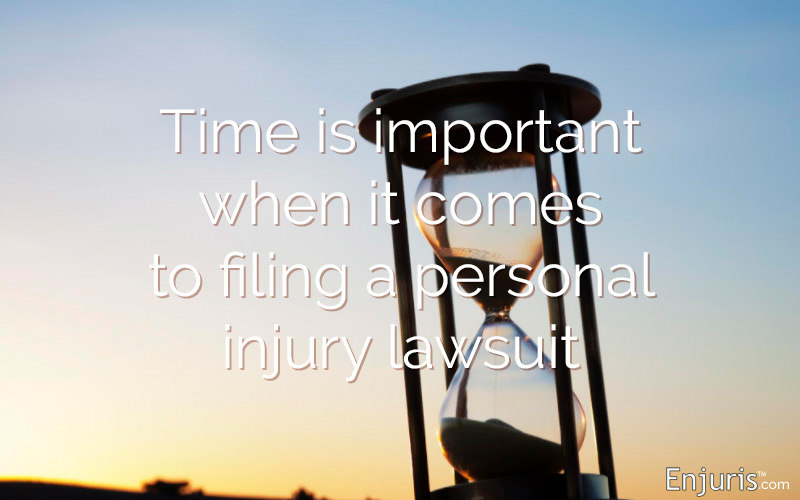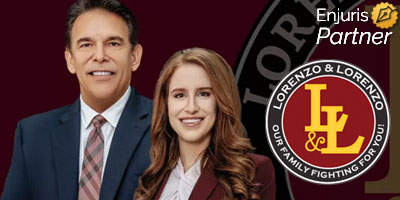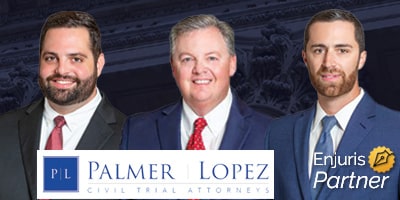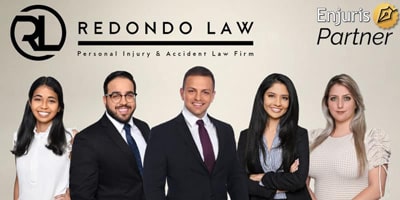Looking for an experienced, knowledgeable and passionate lawyer?
Lawyers have a bad reputation as being sleazy, money-grubbing, slick-haired opportunists who make a living chasing ambulances and taking advantage of vulnerable people in unfortunate circumstances. For this reason, many folks dread the thought of meeting with attorneys and will put it off as long as they can.
However, if you or a loved one were seriously and catastrophically injured, you might be out of options.
While the legal profession certainly has "bad apples" (like any profession), we want to officially dispel the myth that all attorneys are like this when, in fact, many injury lawyers have dedicated their careers to helping people who have been short-changed by insurance companies, individuals, companies and other entities following a life-changing accident—despite the fact that these attorneys could make more money representing insurance companies and other corporate interests.
If you are seeking justice and compensation following an accident or injury in Gainesville or Alachua County, then you're at the right place.
As the home of the University of Florida (the 5th biggest public university by enrollment in the country) and a thriving local economy, the population of Gainesville has swelled in recent years to over 130,000 residents, making it the largest city in Alachua County and in North Central Florida. Unfortunately, thanks in part to the influx of residents, students and visitors each year, Gainesville is also home to a high rate of accidents and injuries.
Whether you live and work in Gainesville, attend school here or are just visiting, you might wonder what your legal options are after a serious accident or injury. First, you should know that the Sunshine State has many laws, rules and deadlines that can greatly impact your injury compensation. For this reason, if you're injured and wish to learn what to do next, consider contacting an experienced personal injury attorney.
Do you want to talk to a personal injury attorney?
If you have questions about your case, the best thing you can do is speak with an experienced lawyer near you who will review your claim and explain what to do next.
Step 1: Determine what type of lawyer you need
For and foremost, you need to know what kind of attorney to hire. Many people don't realize that not all lawyers are the same.
Think of lawyers like doctors — you wouldn't see a neurologist about a skin infection. Neurologists and dermatologists are both medical doctors, but they specialize in very different areas of medicine. Likewise, you wouldn't want to consult a bankruptcy lawyer about your personal injury case.
It's important to consult with a legal practitioner who specializes in the area of law your case falls into.
Criminal vs. civil law: what's the difference?
Broadly speaking, lawyers are categorized based on what area of law they practice and what type of courts they go through. A couple of the biggest practice areas are criminal law and civil law. Criminal law pertains to punishment for criminal offenses and goes through the criminal court system, while civil cases address the private rights of individuals and go through an entirely separate civil court system.
| Main distinctions between criminal and civil law: | ||
|---|---|---|
| Criminal law | Civil law | |
| Definitions | Governed by criminal laws at the local, state and federal levels, criminal cases establish penalties and punishments when an individual breaks criminal law or commits a criminal "offense." | Governed by civil procedures and codes, civil cases arise when there is a legal dispute between one individual or entity and another. |
| Procedure | Criminal cases are processed through the criminal justice system. Charges are brought by state or federal government prosecutors. Only the government can initiate criminal prosecution. | Civil cases are processed through the civil court system, or outside of court through mediation and arbitration. Cases are brought by the injured person (called the "plaintiff") or their attorney against the "defendant." |
| Standard of proof | Criminal cases must meet a strict burden of proof — "beyond a reasonable doubt" — in order to convict. | The legal standard for winning a civil case is lower than criminal cases. Plaintiffs must prove that the defendant is "more likely than not" responsible for their injury. |
| Resolution | If prosecutors successfully prove their case, the accused individual is "convicted" and certain legal penalties are issued during sentencing such as fines, probation and prison time. | If a plaintiff successfully proves their case, the defendant is found to be "liable" and financial compensation (or "damages") is awarded for medical bills, lost wages, pain and suffering and other expenses. |
| Examples |
|
|
What is personal injury?
"Personal injury" is a special category of civil ("tort") law that encompasses all cases arising from personal bodily injury, property damage and other damages. Damages in personal injury cases can arise from physical, emotional and/or financial harm.
Within personal injury law, cases can be further categorized as torts based on:
Negligence.
When an injury or harm occurs due to an unintentional act caused by carelessness, recklessness, distraction or a failure to act, they are said to be negligent.
Strict liability.
When something that causes injury or harm is neither due to negligence nor an intentional act, some individuals and companies may still be liable under the law of strict (or "absolute") liability.
Intentional acts.
When an individual or entity purposely injures or harms the plaintiff, they can be determined to be legally and financially liable.
Common types of personal injury cases
A vast majority of personal injury cases arise from the following scenarios:
Don't let the word "accident" fool you when talking about car accidents, since most crashes and collisions are preventable. If another driver's negligence or reckless driving caused your injuries, you may be entitled to compensation beyond what auto insurance provides.
Crashes involving semi-trucks, tractor-trailers, 18-wheelers, big rigs and other large trucks aren't as common as car accidents, but they are much more deadly due to the size and weight of the truck. Trucking companies also make these cases more complicated by frequently fighting injury claims.
Losing one's own life is the worst "injury" a person can suffer at the hands of a negligent individual, company or entity. In such cases, the person killed isn't alive to pursue justice and compensation, so instead certain eligible dependents such as their surviving spouse and children can file a wrongful death claim on their behalf.
Medical malpractice
Medical providers, doctors, nurses and other healthcare professionals are held to a strict standard of care. If they fail to uphold this standard and you or a loved one are injured as a result, you can sue for malpractice. Medical negligence is one of the leading causes of preventable death in the U.S.
Premises liability
In Gainesville and across Florida, property owners may be liable in some circumstances if someone is hurt on their premises. Common examples of cases where premises liability laws apply include slip and fall accidents, swimming pool drownings, dog bites and animal attacks.
Defective products
When a defectively designed, manufactured or mislabeled product causes a child or adult harm, the manufacturer or another company may be liable for damages under Florida's product liability law. Most defective product cases are strict liability torts.
Other less common types of personal injury cases include:
- Construction accidents
- Workplace accidents/workers' compensation
- Pedestrian/bicycle accidents
- Boating accidents
- Defamation, libel and slander
- Nursing home abuse and negligence
- Toxic torts
- Food poisoning
- Legal malpractice
- Assault and battery (intentional torts)
Step 2: Research lawyers and firms near you
Next, once you’ve determined exactly what kind of attorney you need, it’s time to start looking for firms or individuals in your area with the right background and expertise. It’s important to consider local lawyers with offices nearby since personal injury laws can vary by state and county. You want to make sure the attorney you hire to represent you understands the important rules, regulations and deadlines that apply to your case.
Here are some suggestions for locating potential lawyers near you:
- Ask coworkers, friends and family for recommendations
- Find out if other lawyers you’ve worked with in the past can refer you
- Visit your state or local bar association website
- Do an online search for "personal injury lawyers in Gainesville, Florida"
- Browse Enjuris’ free attorney directory
In addition to the lawyer’s experience, consider the following factors when searching for the best personal injury attorney near you:
Client reviews and testimonials
Positive reviews from former clients are one of the most important indicators of how attorneys will treat you and handle your case. In addition to seeing how many good reviews an attorney has, check the quality of these reviews and what people liked (or disliked) about working with this firm.
Past case verdicts and settlements
Although past case verdicts are no guarantee that an attorney can deliver the same result in your case since every case is different, looking at how much money similar cases were resolved for can give you a sneak peek into the attorney’s skill, competence and success rate.
It’s also worth noting how many of these cases were resolved out of court during negotiation and mediation versus how many went to trial.
Attorney awards and memberships
There are many legal organizations and associations that attorneys can participate in or be recognized by. Some of these organizations award special badges to the most qualified attorneys. These awards indicate that an attorney has achieved a certain level of expertise, experience and professionalism. Membership in organizations also shows that the lawyer is active in their field and an industry leader.
When comparing personal injury lawyers, look for awards and logos showcasing each attorney’s qualifications.
Accessibility and ease of communication
When researching attorneys, pay attention to whether or not the lawyer advertises a "free consultation" or "free case evaluation." Also, do they have a phone number prominently displayed on their website? Do they offer 24/7 live chat services?
These services are indicators that the attorney values communication and aims to be readily available to their clients.
Step 3: Meet with qualified attorneys
Once you’ve compiled a list of a few qualified personal injury attorneys near you that check all of your boxes, it’s time to schedule a consultation via phone, video chat or face-to-face. In-person consultations are best because it allows you to make a more personal connection and meet other staff who may be working on your case.
However, in post-pandemic times, video chat and phone consultations have become more common, and this can still be a great way to get to know the attorney—plus it can be more efficient and convenient when vetting multiple attorneys.
What to bring
In order to get the most out of your consultation, it’s important to be prepared by bringing the following information and documents with you—or having them organized and ready during your call:
What to ask
The right questions can help you determine if this attorney is the right one for you and your case. Here’s a brief checklist of questions to ask to help you the conversation started:
- How long have you been practicing law?
- How many personal injury cases have you handled in my state for this type of accident or injury?
- Have you tried or settled similar cases in my city or county?
- Who will be assigned to my case? Will you handle my case personally?
- Do other lawyers refer cases to you?
- How many of your cases go to trial, and what is the success rate of those that do?
- What sort of settlements and out-of-court resolutions have you obtained?
- How much do you think my case is worth?
- How do you expect to be paid, and how much are your fees? Does this change if my case goes to trial?
- If we lose, what costs will I be responsible for, if any?
- How soon can you file my lawsuit, and how long do you anticipate it will take based on the information you have so far?
- What expectations would you have of me? What is my role in the case?
- What are some potential challenges you foresee in my case?
- How will you keep me updated on the progress of my case?
- Have you ever been censured or disciplined by any legal or ethics committees in the past?
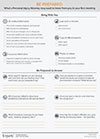
A worksheet to prepare for your first meeting with a personal injury attorney – what to bring, what they'll ask
Download in PDF format

Worksheet with questions to ask a personal injury attorney to help determine if he or she will be a good fit for your case
Download in PDF format
If you meet with an attorney you really click with and wish to hire them to represent you, the only thing left to do is sign a contract so that they can get started building a strong case!
Why hire a Gainesville personal injury lawyer?
One thing many Gainesville locals love about Hogtown is that it's a vibrant and bustling community, but still has a small-town charm. In this community, neighbors look after each other and it’s common to see someone you know while out and about. Because of this close-knit community, Gainesville accident victims are often surprised when their claim runs into a roadblock put up by a faceless corporate insurance company a thousand miles away with deep pockets.
The role of a personal injury attorney is to look after your best interests and ensure that your rights are protected from insurance companies and corporations that see you as just another claim number cutting into their profits.
Unfortunately, personal injury law can be confusing and complicated to the average non-legal person, and corporate insurance lawyers know how to use the legal red tape to their advantage to reduce or deny valid claims. What’s more, perfectly justified lawsuits are frequently derailed simply because of a procedural error or missed deadline.
When your financial recovery is on the line in a personal injury case, it’s important that you obtain legal representation from the best.
That said, not all accident and injury cases require help from a legal professional. Here’s how to know if consulting with an attorney is necessary:
When you may need an attorney
- You or a loved one were injured
- Multiple people were harmed
- You missed more than a couple of days of work
- Property damage was sustained
- There’s a dispute over who is at fault
- Insurance coverage is insufficient, or the insurer disputes/denies your claim
- The police report is incorrect
When you may NOT need an attorney
- No injuries, or very minor ones
- No property damage
- The cost of damages is too small (qualifies for small claims court)
- Liability is clear and undisputed
- Insurance covers all expenses
- You live a no-fault state
- You feel 100% confident in navigating the complex legal process and playing hardball with insurers
Following a serious accident or injury, the best thing you can do is meet with a personal injury lawyer near you to make sure you fully understand your right to compensation. Typically, this meeting costs nothing but your time—and it is well worth it since it could mean the difference between full compensation and getting stuck paying for someone else’s negligence.
Need a Gainesville attorney?
Statute of limitations to file a personal injury lawsuit
You typically have 4 years from the date of the accident to file a lawsuit for an injury in Florida. This is called the "statute of limitations." If you don’t file your lawsuit within that time limit, the court will likely refuse to hear your case.
